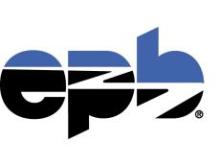Erwin Deploys Phased Fiber Plan - Community Broadband Bits 235

Nestled in the Cherokee National Forest on the border of Tennessee and North Carolina, not far from Virginia, is Erwin. Erwin Utilities runs the water, wastewater, and electricity for the town of 6,000 and long wanted to invest in a fiber network. After years of following industry trends, they developed a plan to build it and tell us how in Community Broadband Bits episode 235.
General Manager Lee Brown and Fiber-Optic Engineer John Williams join us to discuss what started as a pilot project but is now an incremental plan to connect the entire community with a Fiber-to-the-Home network offering high speed Internet access and telephone service.
We discuss the reaction from the community, financing, and how they are using it for smart utility management -- not only for electricity but also for water services.
This show is 29 minutes long and can be played on this page or via Apple Podcasts or the tool of your choice using this feed.
Transcript below.
We want your feedback and suggestions for the show-please e-mail us or leave a comment below.
Listen to other episodes here or view all episodes in our index. See other podcasts from the Institute for Local Self-Reliance here.
Thanks to Admiral Bob for the music. The song is Turbo Tornado (c) copyright 2016 Licensed under a Creative Commons Attribution (3.0) license. Ft: Blue Wave Theory.









